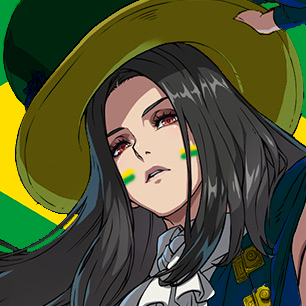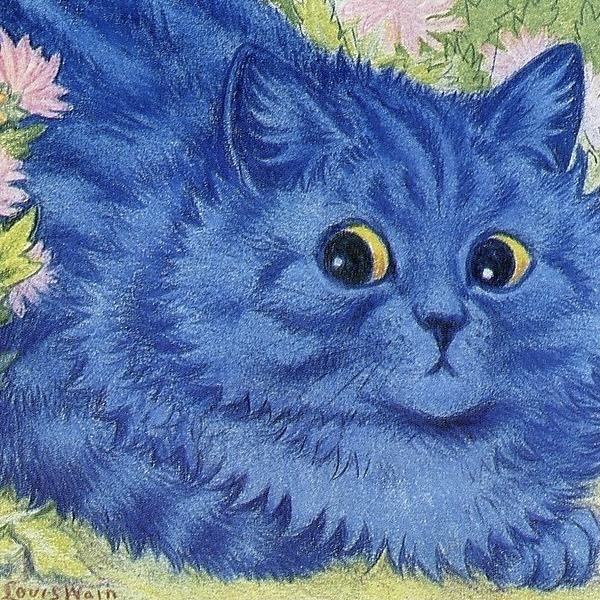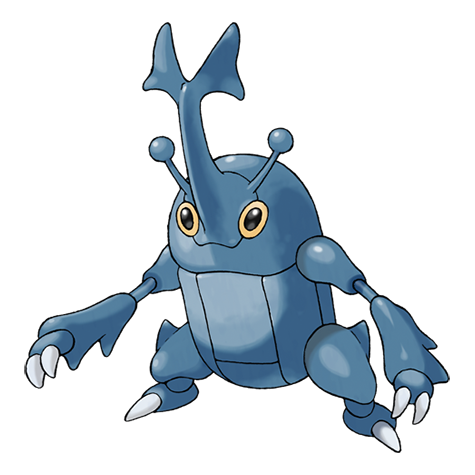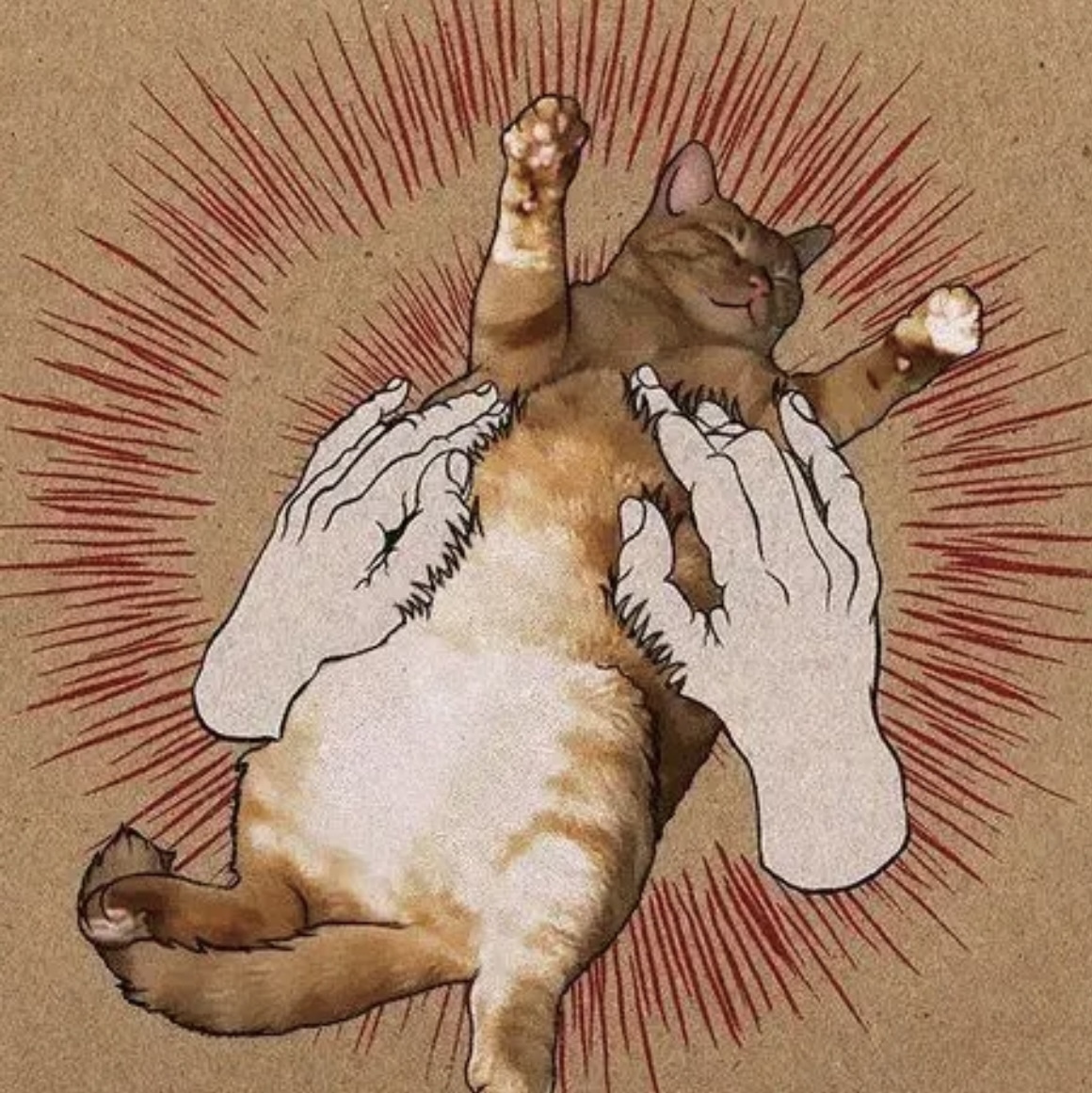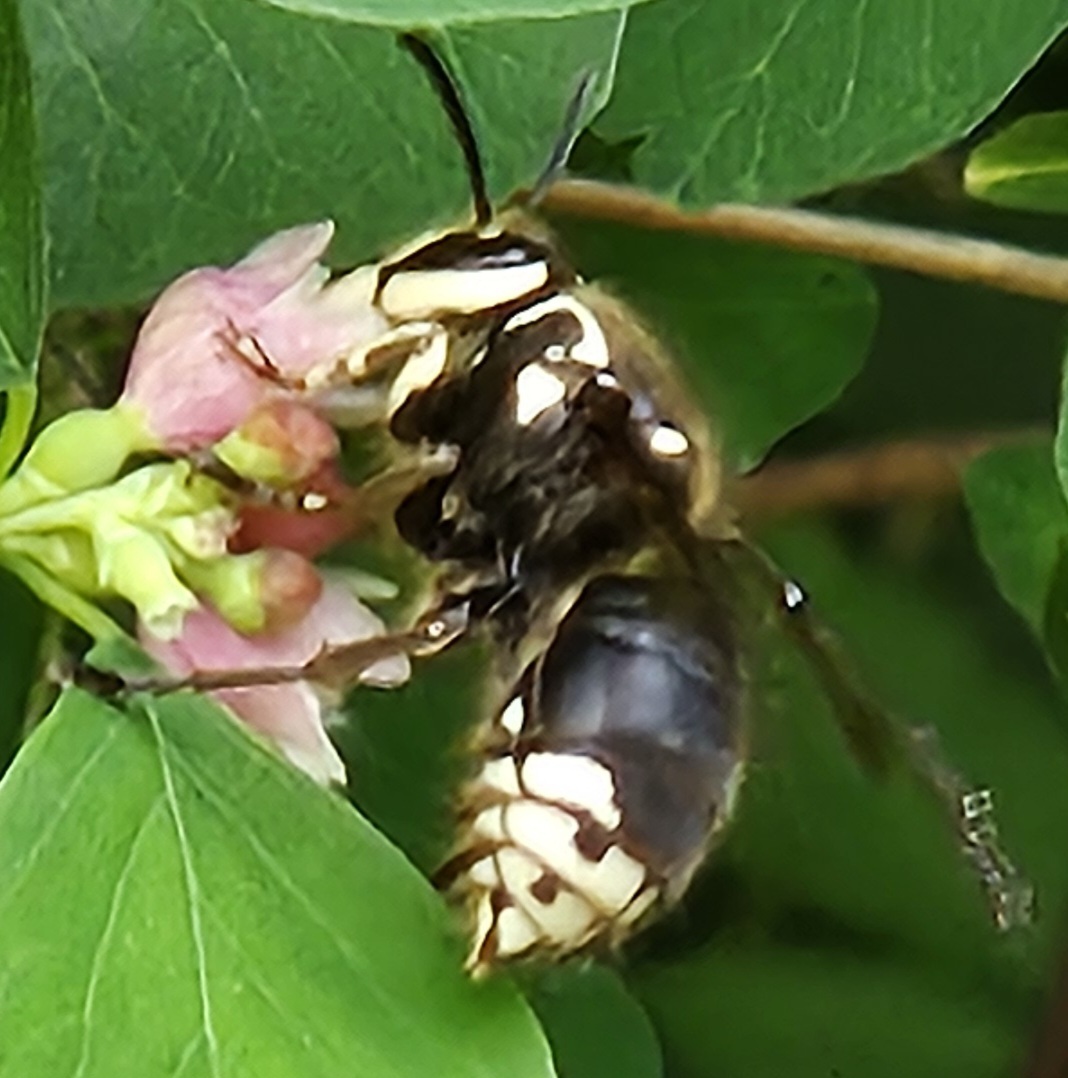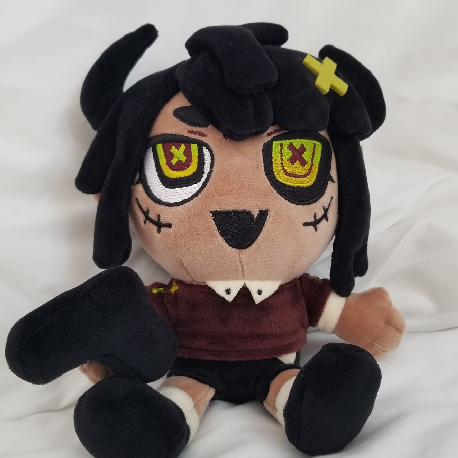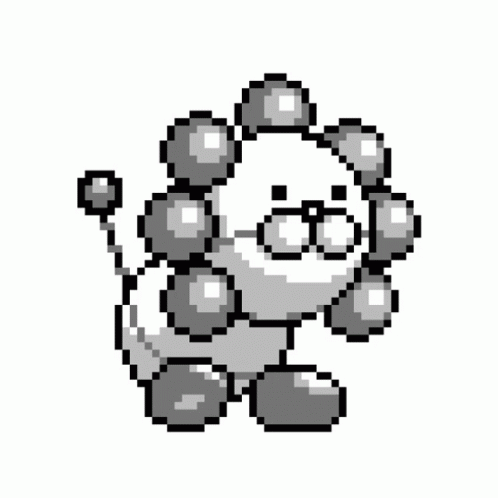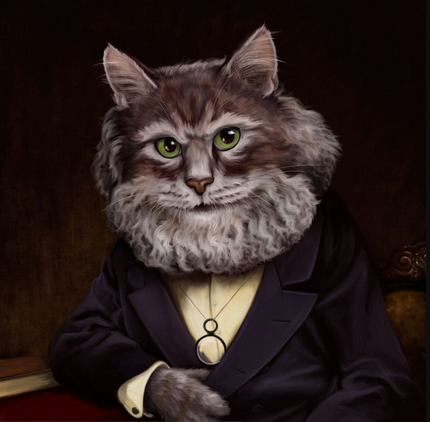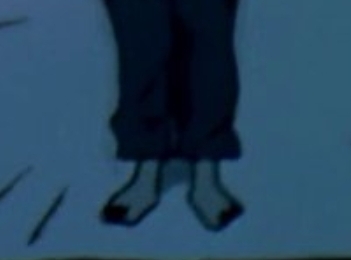WHERE TO GET THE BOOK: http://libgen.is/book/index.php?md5=F6B31A8DAFD6BD39A5986833E66293E6
Audiobook format (expires 1/27): https://litter.catbox.moe/l3298q.m4b
So, this post will be “Introduction” in the sense that it will introduce us all to the book club and the book, and we will also be covering the introduction. The emotional content is pretty heavy; as such I figured it deserved its own discussion. It’s not especially long, but it covers Dr. Price’s journey into accepting his autism, and if you’re on the spectrum or even just neurodivergent in general you’ll probably strongly relate to a lot of what he lays down here. You, like me, may read this chapter and find yourself thinking he’s literally me, he just like me, he just like me fr ong no cap 
Dr. Price is a transgender social psychologist born in Ohio, who graduated from Loyola University Chicago where he teaches as a professor in continuing studies. He wrote and published Laziness Does Not Exist before this one, and it’s also worth a read. In this book, Dr. Price also discusses his gender identity and how there’s a very high incidence of gender non-conformity amongst neurodiverse people. So in addition to folks with ADHD and autism, or those with other neurodiversities, it can also benefit LGBT+ folks who have to cover up their true selves for safety or social acceptance.
I plan on making another post about chapter one on Sunday or Monday of next week, depending on whether I can make time, and then one post about each chapter every week or every other week depending on what people’s feedback is.
In the intro, Dr. Price discusses his personal and emotional problems, social isolation, autistic self-discovery and research, entry into the autism self-advocacy community, and official diagnosis. He discusses how people who don’t fit the stereotype of autism are often neglected by medical professionals. How this neglect harms neurodiverse people of all stripes, and how unmasking can be a key to a full, authentic life. (Here’s hoping.)
He describes unmasking as a frightning and, indeed, potentially dangerous prospect, but provides tools throughout for approaching the process and beginning to know yourself, find where the mask ends and you begin, and believe that the person underneath is worth knowing in the first place.
First, discussion questions:
- What interested you in this book club?
- Are you neurodiverse? Do you know someone who is?
- What stood out to you about the introduction? Any choice quotes? Anything you relate to?
He ends with an exercise called the Values-Based Integration Process, which we’ll go over below.
VALUES-BASED INTEGRATION PROCESS (by Heather R Morgan) STEP ONE
"Think of five moments in your life where you felt like you were FULLY ALIVE. Try to find moments throughout your life (childhood, adolescence, adulthood, school, work, vacation, hobbies)
Some of the moments might leave you with a sense of awe and wonder – ‘Wow, if all of life was like that, it would be amazing!’
Some of the moments might leave you feeling deeply recharged and ready to face the next challenge, or satisfied and fulfilled."
The books says to write it down in as much detail as possible, but I don’t actually expect anyone to post all that stuff here. Just a personal exercise to get the juices flowing. I’ll post some of my own personal thoughts in a comment below.
CARCOSA@hexbear.net , I was asked to tag you for a sticky on this. I think a few mods are in my tag list as well if you can’t get to it.
The following folks asked to be tagged:
- ReadFanon@hexbear.net
- Othello@hexbear.net
- Wertheimer@hexbear.net
- roux@hexbear.net
- voight@hexbear.net
- LarsAdultsen@hexbear.net
- BreadMaster5000@hexbear.net
- NoLeftLeftWhereILive@hexbear.net
- Pluto@hexbear.net
- PointAndClique@hexbear.net
- Jobasha@hexbear.net
- FodlegBob@hexbear.net
- Magician@hexbear.net
- ByteFoolish@hexbear.net
- YearOfTheCommieDesktop@hexbear.net
- Orannis62@hexbear.net
- homhom9000@hexbear.net
- the_itsb@hexbear.net
- optissima@lemmy.ml
- AdmiralDoohickey@lemmygrad.ml
- AlbigensianGhoul@lemmygrad.ml
Sorry for the long time since my first comment here, only found the energy to tackle this right now.
I have one question tho. I never really participated in any sort of book club before. Is this basically just a post a week discussing a chapter at a time and we just comment about it in each thread, or is this something different?
Now for the discussion questions:
What interested you in this book club?
Even before I was diagnosed as autistic a little less than a year ago, I was already searching about it like crazy, and one of the biggest recommendations I found was this book, but I never got around to reading it.
Are you neurodiverse? Do you know someone who is?
Like I said above, yeah I’m autistic. I do know at least one other person that is a diagnosed neurodivergent, in his case he’s bipolar. There’s probably other people around me that might be neurodivergent too, but no other actual diagnosed people. I don’t think there’s anyone else in my family that is also autistic tho, I might be the only one, makes me feel kinda lonely actually.
What stood out to you about the introduction? Any choice quotes? Anything you relate to?
I haven’t read the introduction yet since I just downloaded the book and it’s very late here, I’ll edit this tomorrow and put my thoughts about it. (Also, I was confused for a bit and thought this question was about this post as an introduction, not the introduction of the book, lol. Had to take a look what others were writing to realize that cuz I didn’t get the question.)Well, aside from the “he’s literally me, he just like me, he just like me fr ong no cap” from 90% of the introduction lol, these quotes just describe me:
I believed something was fundamentally wrong with me. I seemed to be broken in ways I couldn’t explain, but which everyone else could see at a glance.
After being mocked about our passions, we become secretive about our special interests.
To other people, my tears were immature tantrums and my opinions were condescending diatribes. As I grew up, I learned to be less intense, less embarrassing - less me.
I couldn’t describe myself better. Years and years of non-stop bullying followed by my loud crying everyday of my life during childhood and being constantly mocked for the things I liked, all while feeling broken, feeling angry at the other kids, feeling like I didn’t belong and that I was an alien, couldn’t result in anything other than a mess of an adult that is still traumatized to this day. 🫠
Good thing I’m in therapy at least.
Also, add me to the tag list if you can, please.
I’m going to join on this account too as a kind of prestige class upgrade thing.
What interested you in this book club? Are you neurodiverse? Do you know someone who is?
There was a time when I questioned whether I was ND, but I ruled it out based on online assessment tests. Also, a therapist dismissed the idea without any questionnaire or deep discussion on the matter, saying it was more likely that some social stuff I struggle with were because of childhood issues.
I have some ND friends, I relate to some of their experiences but not all. When I hang out with NTs, I can’t tell if I’m not having a good time because of nd/nt mismatch or because I’ve yet to meet compatible NTs.
What stood out to you about the introduction?
The mention that masked autism flies under the radar on some diagnostic tests.
Please tag me for the next meetings.
What interested you in this book club?
Diagnosed as autistic ten years ago.
Are you neurodiverse? Do you know someone who is?
Autism, bipolar I, C-PTSD
What stood out to you about the introduction? Any choice quotes? Anything you relate to?
The history of abusive/deeply unfufilling relationships.
What interested you in this book club?
This post on hexbear dot net and the fact that I also recently downloaded it :) good timing
Are you neurodiverse? Do you know someone who is?
Just me and every one of my friends (except for maybe one)
What stood out to you about the introduction? Any choice quotes? Anything you relate to?
My self-confidence is absolutely shot from years of shame and hiding myself.
“I’d hidden all this for years because I was certain it made me a joyless, unlovable asshole. Now I was beginning to wonder why I believed such awful things about myself.”
My goal is to eventually get to this point. My therapist, for example, has continually asks me why I believe bad things about myself and tear myself down so often. And I genuinely have no other answer than it has been what people have seen in me ever since I can remember, particularly my family
This book has already changed, and may have saved, my life. Since I made my previous post about it I’ve consulted two of my oldest friends - one just finished reading, the other is now starting - and they agree that I’m probably Autistic, even though they say it had never occurred to them before. All three of us had serious misconceptions about what Autism is, and this book has been profoundly illuminating for all of us.
What interested you in this book club?
It was @Pixel_Juicer@hexbear.net 's post here that really started not only clearing up some misconceptions but also ringing some bells. And then other posts, especially from @FourteenEyes@hexbear.net and @ReadFanon@hexbear.net , pointed me toward Unmasking Autism in particular. And here I thought the first Hexbear-approved book I was going to read this year was Clara Mattei’s The Capital Order.
Are you neurodiverse? Do you know someone who is?
Yes - I have severe migraines, which are not only neurological but have also caused enough other problems that I think they qualify as neurodiversity. I also have depression. And lately I’ve been having serious trouble dealing with the neurotypicals, which is why I started having more questions and reading threads like this one, so I hope that anyone else reading this who has trouble understanding why their life is the way it is will also read this book.
What stood out to you about the introduction? Any choice quotes? Anything you relate to?
In the introduction, the line that hooked me was “I seemed to be broken in ways I couldn’t explain, but which everyone else could see at a glance.”
For the full book, the most important thing for me was the discussion of autistic burnout. That rang more bells than Quasimodo, and figuring out how to better avoid it (and the ensuing migraine clusters that absolutely annihilate me) is why I think my life is about to seriously change for the better. (Might get worse, first, but.) Comrades, I don’t know that I have ever felt hope like this before. Thank you, thank you, thank you to everyone here.
Is this book going to make me cry?
Yes
It did for me.
What interested you in this book club?
I have Autism myself and being able to better understand the condition will definetly help me a lot.
Are you neurodiverse? Do you know someone who is?
as I previously said yep, and pretty much everyone in my life is. my parents aren’t diagnosed but at least one of them does have something going on
What stood out to you about the introduction? Any choice quotes? Anything you relate to?
There were some anecdotes I highlighted, as I share in some of the traits mentioned, and I want to try and untangle them and see how exactly they apply to me. For instance, I got into a really bad abusive, codependent relationship as a result of my fawning and people-pleasing instincts. I’m still pretty deep in a metaphorical pit myself from my own disabilities with ADHD and to another extent autism. It’s pretty miserable and feels like it can’t be ‘fixed’ or mitigated sometimes, but I really want to be able to, so that’s what I’m interested in looking at.
Also please add me to the tag list :)
Is anyone else ready for Chapter 1? I was sort of looking forward to Hexbear reading this
call me out why don’t you

Ty for the tag. I didn’t get a notification for it I’m not sure why but I saw the post so all good.
What interested you in this book club?
There are many autistic comrades on hexbear so I want to learn more about it.Are you neurodiverse? Do you know someone who is?
I don’t think so? I don’t know to be honest. There are things in the introduction I related to and others I didn’t (apologies for jumping ahead on a question, I felt it was better to answer it here). I don’t think I’m autistic though. I have colleagues I believe are neurodiverse and people I interact with through work and volunteering.What stood out to you about the introduction? Any choice quotes? Anything you relate to?
I don’t know when the introduction ended, I’m listening to the audiobook and got to about an hour in, so I hope I’m not covering ground for the next chapter. I liked that Price is narrating it himself (right? Or did I get that wrong). No quotes stood out to me. I think I’m gunna hold back from commenting too much until I’ve listened a bit more?Oh actually, shout out in the intro to Hannah Gadsby great comedian worth checking out.
Reading the dead tree version right now, stuck in an analysis loop on the last page of the introduction.
Edit: goddamned adhd, missed the homework portion:
- What interested you in this book club?
Seeing other people mention this book, so I ordered it.
- Are you neurodiverse? Do you know someone who is?
Aside from the aforementioned adhd, I’m also on the autistic spectrum.
- What stood out to you about the introduction? Any choice quotes? Anything you relate to?
There were several points where I audibly said “what the fuck”. It’s like he was writing the book about me.
There were several points where I audibly said “what the fuck”. It’s like he was writing the book about me.
Yeah. There were lines in this book that I had said, almost verbatim, to my therapist.
I’ll write my thoughts later, but for now I wanted to thank you for this, I’ve been meaning to read this book for a while now and this might be the push I need.
What interested you in this book club?
I’m on a huge ass reading binge that started with “Why am I actually not reading theory?” that started about 1.5 years ago with Marx and Engels. This has become a journey of me rediscovering a love for reading. I actually started forming themed blocks around all the books I have been wanting to tackle. I did not have a Neurodivergent block planned and then saw this book mentioned a bunch shortly after my diagnosis. I actually finished reading this book at the beginning of this month but it’s kicked off a new block focused on Neurodivergence, Trans Liberation, LGBTQ+ in general, Feminsim, PoC, and etc stuff. Basically marginalized groups. I wanna learn as much as I can now lol.
Rambling aside, I guess I am interested in this book club to see how others see themselves reflected in the book like I did.
Are you neurodiverse? Do you know someone who is?
My diagnosis is Autism, Severe Depression(probably actually Major Depressive Disorder), and Social Anxiety. My wife is ND, I am on a discord sever full of ND and LGBTQ+ friends, and my bestie is also ND. Our disorders range from both main flavors of ADHD, PTSD/CPTSD, Anxiety, Depression, OCD, and a few more.
What stood out to you about the introduction? Any choice quotes? Anything you relate to?
What stood out for me, was that Devon mentions his drinking problem a few times but I think in the intro. I have a history of drinking and it dawned on me real fast that it was probably a coping mechanism due to my undiagnosed autism and trying to exist in a Neurotypical world without a script. I fell back on alcohol when I had a bad day, or when I had a good day. I did it when I was hanging out with family and friends. I think this was me trying to fix my overstimulation and to try and pretend to be functional in social environments. I think my Depression and Anxiety could also potentially be my body coping as well or it could just be comorbidity(or a bit of both?). Like I’ve always had a drinking problem but it never felt like an addiction. This might be the answer to that.
So, my thoughts. CW: suicidal ideation, self-harm, child SA, trauma, really fucking dark depressing thoughts on display.
spoiler
People appreciated my honesty and vulnerability in the The Will to Change thread, so I figured why not wring out my soul in front of a bunch of strangers on the communist anti-Reddit?
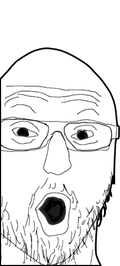

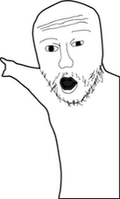
My background is pretty bland and depressing. I’m 37 years old, diagnosed ADHD, clinically depressed (as in major depressive disorder), anxiety. Self-diagnosed autistic after reading this book and realizing that yeah, every facet of my outward self is designed to placate people around me, to fit social expectations, and to try and minimize attention to myself because I associate getting attention with humiliation and shame.
I’ve always been a weirdo. I’ve made no secret of that here. Social problems fitting in as a child. Incredibly smart from a young age, they tell me. I taught myself to read at age 2, I’m told. I later learned that’s sometimes called “hyperlexia” and is strongly indicated with autism. I don’t recall doing the “classic” autism things as a kid like lining up my toys instead of playing with them, but I absolutely preferred to be by myself and had trouble relating with other kids. I was bullied from a young age, always had trouble making friends my entire life. I’ve always felt ostracized, humiliated by my peers more than anything else, unable to relate. I learned I had ADHD at a young age, around 8, and they threw some Ritalin at it and called it a day. Didn’t start actually understanding what ADHD is until the last few years, like post-pandemic, when I started really researching it in earnest and finding out a bunch of things that I was always made to feel were personal flaws that made me a shitty, childish person were in fact documented symptoms of ADHD that I didn’t understand. When I read the breakdown of what “executive function” is I cried for a long time. Finally, one of my worst demons had a name. It wasn’t some shitty thing about me born of cowardice and worthlessness, it was my goddamn brain being weird and not working right, and me not understanding how to work with it. From there, I learned the names of other demons that have tormented me my entire life. Alexithymia. Rejection sensitive dysphoria. Sensory overload. Burnout. Emotional dysregulation. So many things that I’d never been told about and had no idea how to deal with. A place to start. I sought out an ADHD specialist to deal with it, and the anxiety and depression that came along with it.
I’ve been suicidal since I was 15, in and out of therapy since I was 16. What I mean by “suicidal” is that I think about suicide near-constantly. Most of the time nowadays I’m inured to it, it’s like wallpaper, it’s like “haha oh brain when will you learn that splattering yourself all over the wall is not the answer, now let’s get in the shower to get ready for our job we hate.” I used to cut myself when I was under a lot of stress at a grocery deli job when I was 19. I’ve had a loaded shotgun in my mouth, both hammers cocked. I fantasize about putting my head out the window on the freeway, rubbing it down like an eraser on the center concrete divider, yanking my head off and rolling it down the street like a bowling ball, being impaled by a piece of falling satellite debris, anything to keep it a ridiculous fantasy and not a practical way out of my unending pain. And I do mean pain. Chronic pain from flat feet and a fucked up knee and back and neck issues. Emotional pain from long-term social isolation, very few friends at any point in my life, zero romantic/sexual success despite tons of effort and varying approaches and “working on myself” for decades like everyone told me to with no results. I’m not a virgin, if it matters; I don’t think it really does anymore. Favor arranged by a friend. Disappointing for a variety of reasons but… I digress. The real pain is never having been in a relationship, wondering just what the fuck is wrong with me, and learning to hate myself for this and a great number of other reasons over the years, never really knowing the root of my suffering. I really have felt worthless. Useless. I’ve internally compared myself to toilet paper: something that you keep around because you can use it, then you throw it away. Detestable otherwise. I’ve felt like it’s a certainty I’ll die alone never knowing a true friend, never feeling love. Never making anything of myself. Jumping from shit job to shit job, picking up non-transferable skills like knowing a lot about cameras in 2009, how video games are tested, how to make sausage, how to clean an industrial rotisserie grill and dump the chicken grease out of it, and the latest: how to fill out DMV paperwork for California in highly specific circumstances. Never feeling like I was worth much. Always feeling like my emotions were at best an inconvenience to others, that my interests were stupid and lame, and that I was always going to be a weirdo who makes everyone else uncomfortable so I should just hide myself away from the world, or remove myself from it entirely as a matter of moral duty.
I’ve had a lot of trauma in my life, some of which I’ve only recently come to terms with. When I was 6 I was inappropriately touched by another boy maybe a year older than me on a playdate, for instance. I felt like it was shameful and dirty, given my Catholic upbringing, and felt like it “didn’t count” since I didn’t resist, didn’t really understand what was happening, and the perpetrator was, indeed, another boy around my age and not an adult. Just some touching, that’s all. But the shame and guilt and fear I had associated with it festered in me for years, and it wasn’t until I was reading The Body Keeps the Score last year and figured out that dwelling on this memory triggered panic symptoms in me that I said “hey maybe it does count” and talked to my therapist about it. I explored other threads of trauma in my past as well, realizing that yeah, it did fuck me up to have almost no friends, to never fit in, to be convinced I was inherently evil by a church that was at that time covering up mass child molestation. That’s trauma. That’s real. My fucking brain and body are telling me so. I also started taking seriously the notion that I had autism, like really focusing on it instead of letting be a stray thread of thought that I kept dismissing even though it kept surfacing like a DUNE sandworm sensing a plot development about to happen.
So what convinces me is that I get deeply upset by bright lights and chaotic overlapping voices, and just figured these were just annoyances everyone had to deal with, more or less, and pushed it all down. All of my social problems I attributed to just not paying attention and being “socially r-----ed” as I so eloquently put it as a younger man. I just thought I was cringey, and just dumb to not pay attention. I began to worry I was a sociopath or psychopath because of my “lack of empathy,” since I had a hard time understanding why people feel the way they feel in the moment, needing to think about it later on to understand. As I explored the notion of being autistic – or rather, AuDHD, which I say as “A U D H D” because “Audi HD” sounds like a European luxury sedan – and relating very directly to more and more things people have posted both here and elsewhere on social media, directly labeling the thing I relate to as autism, an autistic thing that autistic autists diagnosed with autism by autism specialists do, and learned how a professional diagnosis can cost $2000 and often isn’t covered by insurance if you’re an adult, suddenly the notion that I’m autistic didn’t sound so fucking crazy anymore.
So I stumbled on this book while looking for books on the tism, and looked up the author to make sure they weren’t a quack. Lo and behold, I see his name loosely associated with Jessica McCabe, the How to ADHD girl, who has never steered me wrong on resources before. So I read this book, cried as I read through damn near every chapter, talked about it with my therapist again, who agreed that yeah, it’s expensive as fuck to get assessed and probably not worth it in my circumstances, and instead steered me to some self-diagnostic tools that, as usual, all pinged me as autistic as fuck. The top-rated one (for accuracy, if you knew how to read it and interpret it, as far as separating the normies from the autistics [cool people
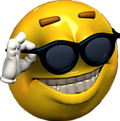 ] goes) was the RAADS-R. The threshold for “autistic as fuck” is 160, I got a 165 on it. So, yeah, probably. Won’t change much in how I treat it with regards to therapy and whatnot, but in terms of how I understand and interpret myself and my needs? Groundbreaking. Very much needed.
] goes) was the RAADS-R. The threshold for “autistic as fuck” is 160, I got a 165 on it. So, yeah, probably. Won’t change much in how I treat it with regards to therapy and whatnot, but in terms of how I understand and interpret myself and my needs? Groundbreaking. Very much needed.And so I saw the Bell Hooks threads and thought, fuck it, why not? I mentioned it, people said they were all for it, they started making threads in anticipation of it, and I thought, it helped me a lot, and it can continue to help me to come back to it and read it again. Why not do it with one of the most principled, accepting, and supportive communities I’ve ever encountered? Someone here could benefit. Maybe I could actually make a positive impact on someone else’s life after all.
I wish I could have written this sooner, specially now that you already made the next post, but I only really got the energy to do it now. I just wanted to say that you’re extremely brave for sharing all of this here, I really mean it. To be able to expose yourself to other people like that is something I can only dream of being able to do one day. It’s inspiring really.
I was bullied from a young age, always had trouble making friends my entire life. I’ve always felt ostracized, humiliated by my peers more than anything else, unable to relate.
Hell, this passage is basically my life, my childhood and my traumas. And it’s tough, that much I know, specially being lonely.
It was difficult to read it all, both because I relate to some parts of it, and because It’s fucked up that you had and still has to go through all of this.
I hope everything gets better for you comrade, despite this capitalistic hellscape we live in, we all deserve to live, to be happy and to be loved.
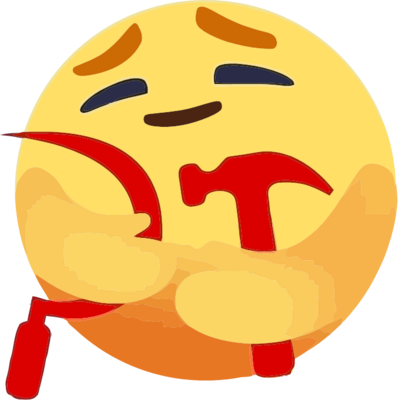
If you have the time and is interested in, take a look at this video (from the little I tested, the english auto subtitles are good enough). It’s about a recent ASD diagnosis of a brazilian comrade and him talking about his life. Despite so many different things, I never related so much and never felt so seen than with this video, I could barely hold myself together by the end of the video, and given what you wrote here, you might relate to it even more than I did.
What interested you in this book club?
I have a copy, unfinished, and want to read it with comrades
Are you neurodiverse? Do you know someone who is?
Yes and yes. Adult diagnosis
What stood out to you about the introduction? Any choice quotes? Anything you relate to?
I’ll add what I highlighted
“To other people, my tears were immature tantrums and my opinions were condescending diatribes. As I grew up, I learned to be less intense, less embarrassing- less me”
“Things like staring at a person’s forehead to stimulate eye contact, or memorizing conversational scripts based on exchanges they saw on TV”
“Refusing to perform neurotypicality is a revolutionary act of disability justice”
I accept I’m autistic, but taking off the mask is scary. Reading that the author had similar feelings makes it feel less scary, that other people on the spectrum could have gone through the same thing. That makes it feel like my diagnosis is less of some attribute defining me and more of a disability many of us share, and therefore can use each other to go through.
The Dr that diagnosed me said, when I’m alone there’s no reason to keep my mask on so use that time to let it all out (or else I’ll get burned out but I took it as self understanding). I got to the poing where I can unmask in front of my best friend. I hope this book can help with the rest of my relationships.

